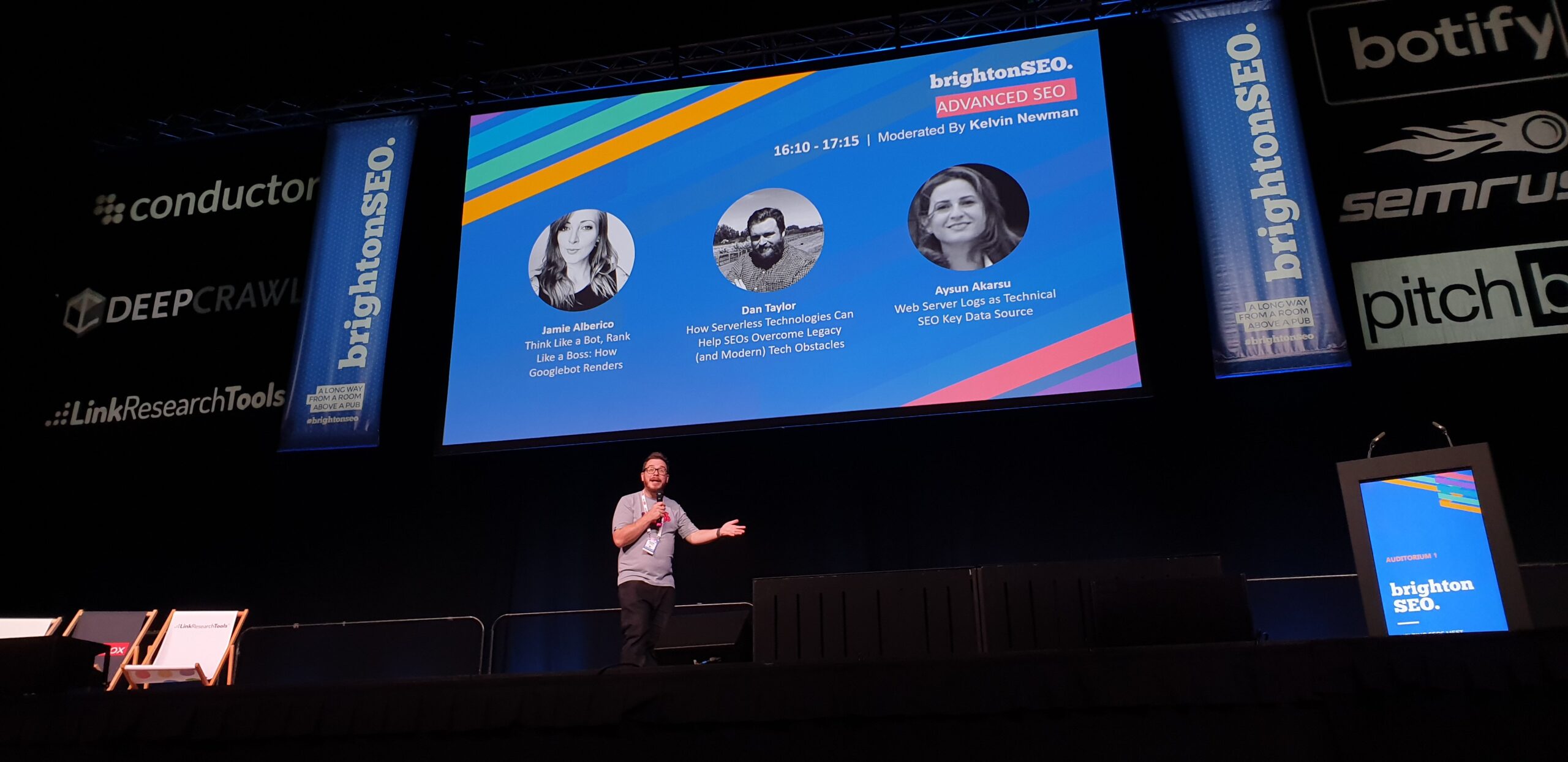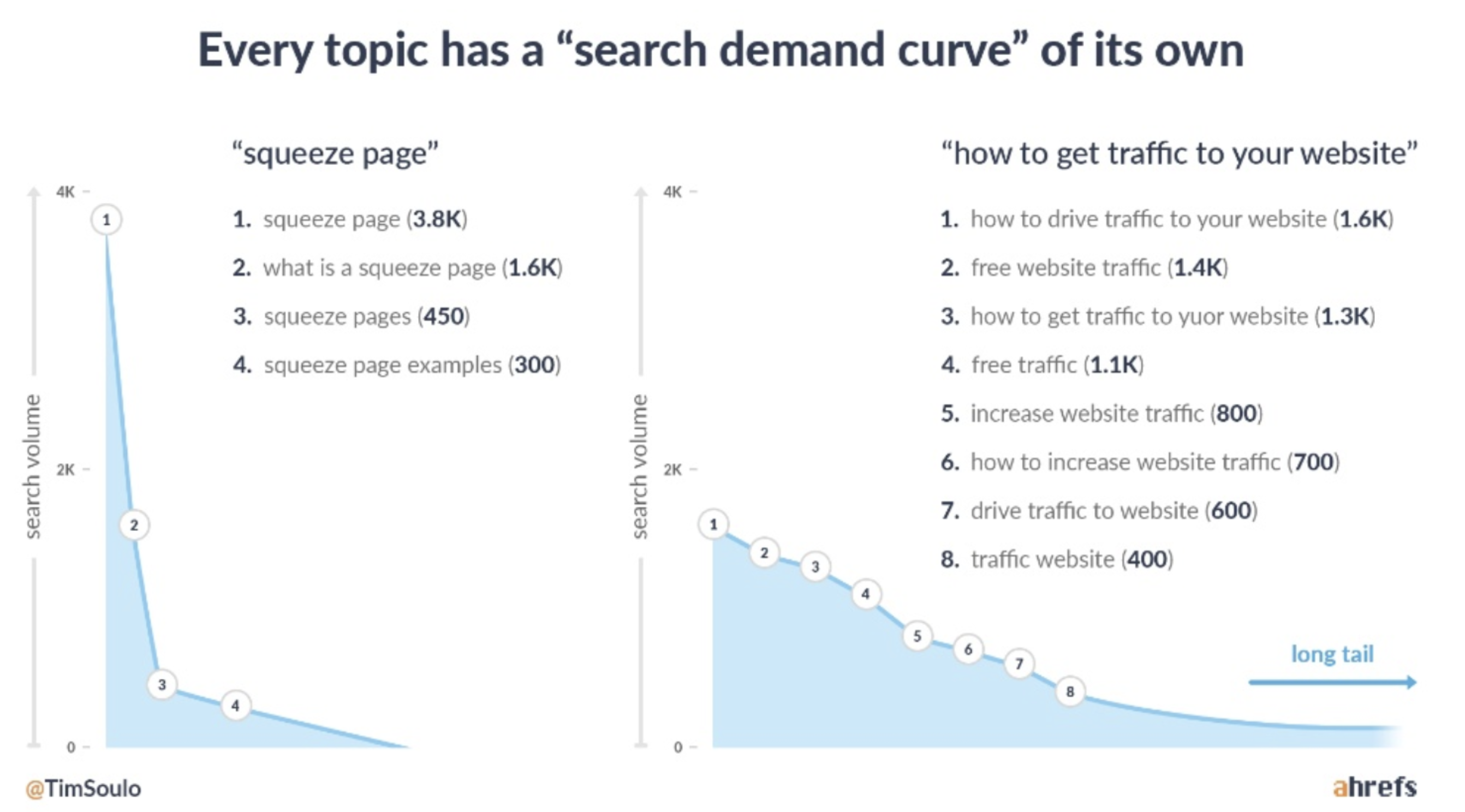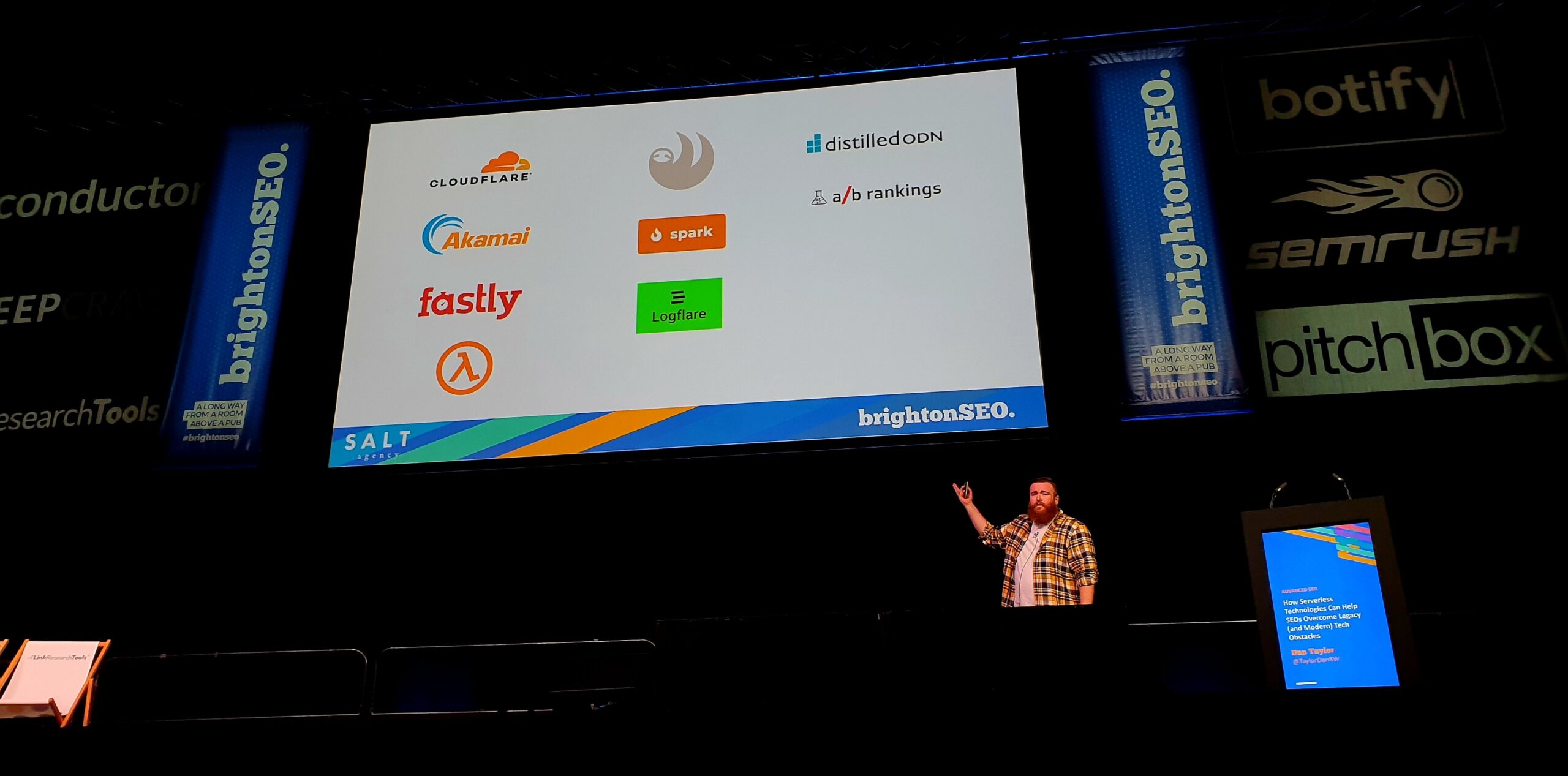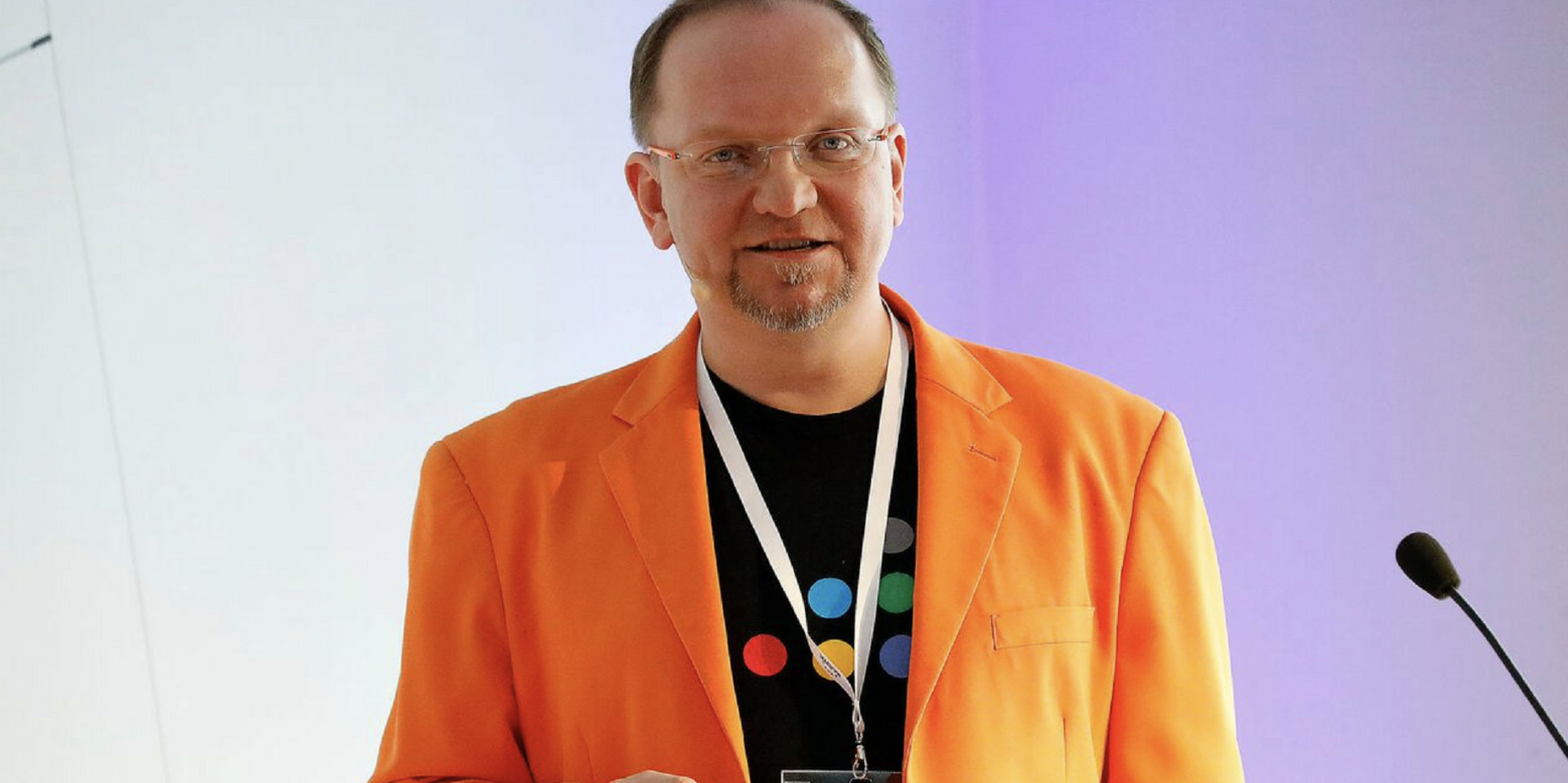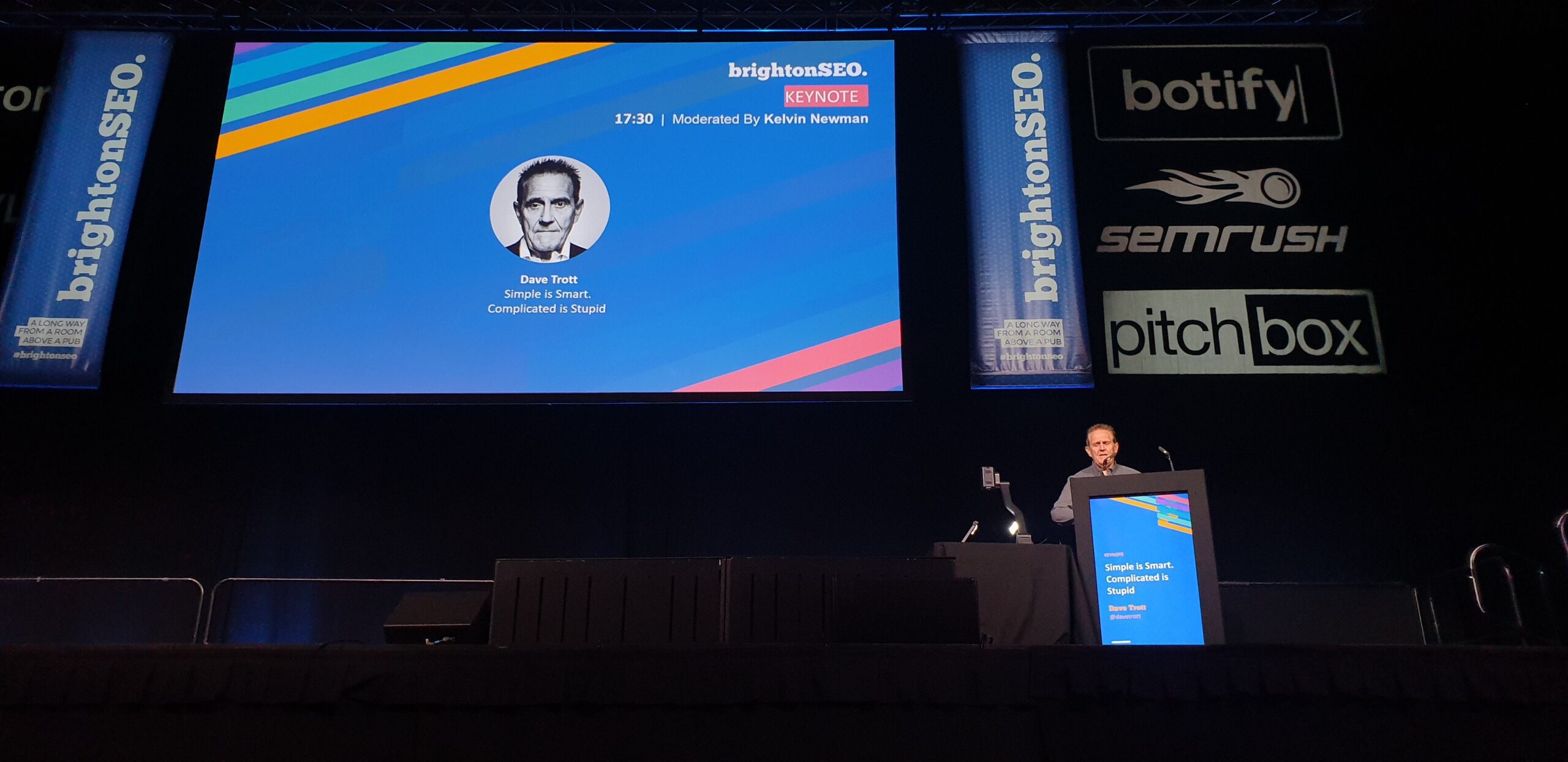The 20th Edition of Brighton SEO has come and gone. The StrategiQ team from both Suffolk and the Midlands converged on Brighton Seafront and joined the 4000+ attendees representing over 50 countries; to indulge in the wealth of knowledge and thought leadership on the agenda…
We began the day in the auditorium of the Brighton Centre. Freshly caffeinated, we were greeted by a plethora of Star Wars references bit of nerdy theming has become a staple of this conference, with no expense spared. This year included a full size Han Solo frozen in Carbonite, a full video intro featuring Kelvin donning full Wookie attire in the cockpit of the Millennium Falcon to welcome everyone to this edition of Brighton SEO.
Talk Highlights –
Track 1 – Future of Search
Beetlejuice’s Guide to Entities and the Future of SEO
Greg Gifford delved into the importance of entities and their role within the future of search marketing. Entities can most easily be described as “things” which are given IDs by search engines and used within their search results (oversimplifying massively). In 2012/2013 Google began to move further away from just notions of Keywords/search terms and started to deepen their understanding of the world by creating entities and identifying the relationships between them.
An entity could be a person, a business, a brand or anything which is significant enough to have its own identity. Greg referred everyone to read this essential series on entities by Cindy Krum of they wanted to get into the detail further.
The main point Greg was making with entities is that Google will, more & more utilise ‘real world’ signals to tell whether an entity provides a good or bad answers to a search. Put even more simply, older notions of “gaming” Google’s algorithms to rank well will become even less and less effective as Google takes other factors into account.
Think positive reviews of a business, customers re-visiting a location, positive sentiment and much more we’re not yet aware of. Greg then continued to provide some more actionable tips for businesses to make use of this now, to take control of their Google my Business listing & ensure that they make use of all the rich features as they can.
Key takeaways:
- Google My Business enables owners to directly edit the information associated with their business entity
- Controlling as many entities as possible relating to your business means you can give the best impression of your business to Google
- Questions & Answers with more then three upvotes on them, can be eligible to be pulled into search results
- Greg loves movies and “bullet points kill kittens”
Rethinking The Fundamentals Of Keyword Research With The Insights From Big Data
Next up was Tim Soulo who explored new dimensions for keyword research and what he believes is a common trap many fall into.
Most people tend to select the most searched-for keywords when undertaking their own keyword research – his example was the difference between “Squeeze pages” (over three thousand average monthly searches) and “how to get traffic to your website” (just over one thousand.
However, urged us to consider the “search demand curve” for each topic, NOT just the top traffic driving term itself.
A really interesting and powerful concept which unlocks the potential of topics, rather than just key phrases.
Key takeaways:
- Just because you target the highest traffic keyword, doesn’t mean you capture the most potential traffic a topic has to offer.
- The vast majority of keywords have little-no search volume, keyword research is always about the selection of target terms
- When you select a target keyword, then consider the overall potential topic search potential
Carrie Rose: Creating Sexy AF Outreach Emails To Land Sexy AF Links
Building links is often considered to be the ‘sexy’ part of SEO and was duly adopted by Carrie Rose in her highly engaging talk on how she does it. The idea that you have to be a large brand or need excessive budgets is not the case but what you do need to do is break through the noise of all the other PRs trying to secure precious media coverage (and links).
Carrie covered everything from building links for a wide range of sectors, to when the best day/time is to send your email
Key takeaways:
- Building links is possible regardless of sector
- Think creatively with the campaign idea and even the means of executing it
- Understand the publishers’ KPIs and what type of content they want
- Research the publication and show the journalist how their article could appear
- Link off to a file of resources rather than attach them in the email
- Understand when people are talking about different topics
Track 2 – Wellbeing & Inclusion
Keep Up Or Give Up: Imposter Syndrome, Burnout and Mental Health in Digital
Amy McManus, addressed the topic of burnout and mental health in the digital and tech industries during a brave and eye opening talk. In particular, Amy discussed the impact that imposter syndrome can have on anyone and everyone – including employers, employees and freelancers.
By definition, imposter syndrome is the inability to believe that one’s success is deserved or achieved as a result of one’s own skill-set or efforts. It’s a topic that has had particular focus as of late, with many articles, surveys and studies created to better understand and – in some cases put a name to – the unique feeling of, well… not feeling good enough, regardless of your personal and professional achievements.
It’s also a topic we see discussed widely on Twitter by professionals across the digital and tech industries. From development to design, SEO and PR, in an industry such as ours that is, by its very nature, constantly evolving to catch up with increasing consumer demand and technological advancements, Amy summed it up perfectly; “You can go to sleep an expert, and wake up a novice.” But how do we combat this in such a service-led landscape?
What was great about this talk, was Amy chose to speak frankly and honestly about her experiences with mental health and burnout – using practical examples of how to combat feelings of inadequacy and re-introduce a work/life balance onto your list of priorities. Perhaps most significantly, Amy left us with a great takeaway;
“You can give 2 hours of work to your client at 50%, OR you can give 1 hour to yourself, then 1 hour to your client at 100%. You accomplish the same amount of work. Which one would you prefer?”
Key takeaways:
- Supported employees and colleagues are happier and more productive – recognise areas with which you are likely able to support (i.e. employee benefits etc.)
- Work hard to remove the stigma on mental health in the workplace whether you are an employer or an employee, it’s important to talk about it honestly.
- On an individual level, balance what you do inside and outside of work – you’ll regret it eventually if you don’t
Track 3 – SERPS
While most SEOs and digital marketers, in general, have an obsession with the latest ‘shiny’ tools, it shouldn’t be forgotten that we can learn a lot from carefully mining through the SERPs themselves.
Mining The SERPs: How To Make The SERPs A Powerful Weapon In Your SEO Armoury
First up was Rory Truesdale from Conductor. His talk was packed with far more than just dog photos, with a plethora of resources and scripts for the engaged audience to try out for themselves.
Using the programming language, Python, within SEO is certainly a hot topic, with Hamlet and DeepCrawl’s, Ruth Everett doing great work in this space. While this can seem unobtainable to some SEOs, Rory reassured the main stage that this wasn’t the case, with the StrategiQ team eager to put his presentation into practice.
Key takeaways:
- Python offers huge potential when used for SEO tasks, especially at scale
- Mining the SERPs provides a greater understanding of search intent and topical relevancy.
- There’s not much you can’t scrape!
SERP Features Glossary
It has become commonplace for SEOs to spot something new changes/tests within the search results and head to Twitter.
Such is the rate of change in this particular area, people have contested how many SERP features there actually are.
Paige Hobart and her team have identified over 30 different features that are eating into the organic listings, which we need to optimise for (where possible).
Key takeaways:
- Different sectors have more SERP features
- Understand how Google is displaying features and frame your content accordingly
- Make sure you still add value to the user by them clicking through.
- Test, test, test! See what works and what doesn’t.
Building a Brand With Local SEO: The Factors That Create Effortless Online-Offline User Journeys
Antony Robinson told us the story of trying to buy his wife a birthday present, and in the process, gave us some incredible insights into how Local SEO Ranking Factors work and how to use user experience to create a sound Local SEO strategy.
Key Takeaways:
- GMB Signals are 25% of Local SEO Ranking Factors
- Standard link signals are different with Local SEO
- Linking to individual location pages is critical
- Reviews , Link and citation signals make up over 30% of local ranking factors – don’t ignore them!
- It’s rubbish when you can’t find the info you need in your local area in SERPs – Don’t make it that way for your users!
Track 4 – Advanced SEO
Think Like A Bot, Rank Like A Boss: How Googlebot Renders
D&D and SEO are a natural fit, right? Jamie Alberico (also known as Jammer Volts) took us on a thoroughly engaging talk detailing the intricacies of how Googlebot renders.
Key Takeaways:
- Use clear, consistent signals,
- Parse content critical to user intent in initial html
How Serverless Technologies Can Help SEOs Overcome Legacy (And Modern) Tech Obstacles
Speaking one of the more juicy subjects looking ahead into the future of technical SEO Dan Taylor melted a few mellons with this one.
The world of SEO is slowly coming to terms with the possibilities of Edge technologies (made possible via CDNs) have to remove the usual technical roadblocks and drive performance where otherwise it would have stalled.
Using Cloudflare, Akamai and other CDNs, search marketers can use this “serverless” technologies to implement changes ranging from small fixes, to full-blown structural changes without even touching the server or code. Google and other search engines can “see” these changes, so can be effective for optimising content or making changes otherwise impossible.
During the talk we were proud to have a few namechecks with our own serverless (Edge) CMS platform Spark, which along-side Sloth are two of the first platforms in this space looking to bring this technology to everyone.
Key Takeaways:
- If your website runs on a CDN, chances are it can make use of “serverless” changes, either now or in the near future
- Code running directly on the CDN is used to make changes to the website without needing actual changes to the page itself
- Changes made like this can be seen by users and Google, so are “search engine friendly”
- Whilst not as good as long-term fixes, this technology can remove roadblocks and prove concepts which otherwise might have struggled to be signed off
- Sloth, Spark & Distilled’s ODN are some of the more established software in this space.
- This technology can also be used to establish SEO A/B testing in some circumstances
Track 4 – Onsite Optimisation
Improve Your Rankings With Internal Links, Like these 7 Popular Sites – Christoph C Cemper
Always a pleasure to watch Christoph C Cemper – or if you weren’t able to spot him, the man in orange!
Christoph’s talk this September was not around creating external links, but how to improve your rankings using an internal link strategy without the use of outreach, PBN’s, link buying or any other dubious methods.
This is one area that is always overlooked by new and experienced SEO’s which is what we call the ’Shiny New Toy Syndrome’ – there’s something new or more exciting to try than to get the basics in order.
The first section that was covered by Chris was around the reason for links, which is quite simply to connect people – sound simple right! Chris made a strong point in that you can be more aggressive with your internal link building strategy due to him not ever seeing Google penalise a website for its internal links!
While there were some great tips my preferred ones were to use money terms / words in your anchor text, ensuring your anchor text isn’t too long and just simply checking your own internal link breakdown with a tool like LinkResearchTools (Chris is the Founder & CEO) or one of my favourites Ahrefs, which will both enable you to determine the breakdown of your internal linking.
Key Takeaways:
While concentrating on the external backlinks for your campaigns don’t underestimate the power of correctly targeted internal links as they are 100% self manageable.
Keynote Q&A with Dave Trott
Simple is Smart, Complicated is Stupid
Returning to the Brighton SEO main stage to deliver the Keynote was the ever inspiring Dave Trott.
Dave’s unique, no nonsense approach to strategy, marketing and advertising has always been refreshing. Although not directly search related, Dave explored the subject of complexity and BS in Marketing… “Simple is Smart… Complicated is Stupid”.
The focus of Dave Trott’s talk was how to separate ourselves from the competitors so you stand out from the crowd and don’t get ignored. Dave’s background provides a unique outsiders view on how we as marketers can be better. The problem is that marketers (and SEOs) don’t understand the media. We focus too much on the method of communication, or the channel, and not on the consumer. The consumer is the only part of the media cycle that doesn’t change.
Paraphrasing slightly, Dave’s exasperated “Stop overcomplicating everything” really struck a nerve within the room. As we’ve covered previously in this article, the digital industry is a constantly moving/progressing entity – but what happens when we take a step back and take into consideration the core elements of what we are trying to achieve? A great way to sum up a day of talks and networking at Brighton SEO 2019.
Key Takeaways:
- 89% of advertising spend achieves nothing because it produces ads and campaigns that just aren’t remembered.
- Impact, communication, persuasion and the 3 key elements to any successful advertisement (or getting a cup of tea made for you). Impact (“Cath”), Communication (“Cath, will you make me a cup of tea?”), Persuasion (“If you make me a cup of tea, I’ll take the trash out”).
- Our brains group similar things together, so if your ad is lost amongst numerous similar ads, you’ll get an even smaller percentage of the attention.
- ‘Viral’ has existed long before traditional media including radio; we need to focus on the consumer to go viral, not the channel.
That’s all for now but we look forward to seeing you all again in April for the 10 year Anniversary of Brighton SEO. If you’d like to discuss how StrategiQ can help with your SEO strategy, get in touch today.

